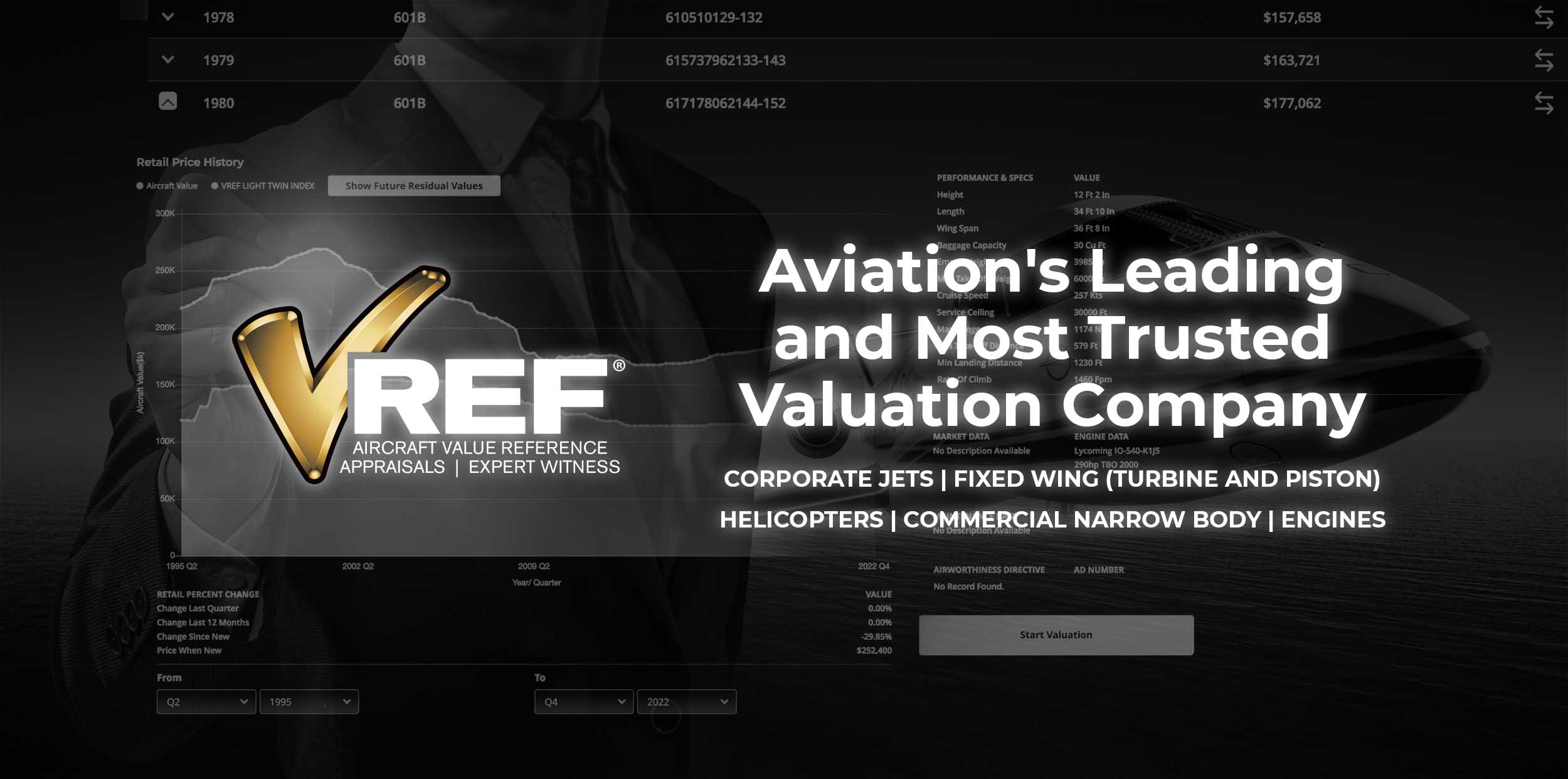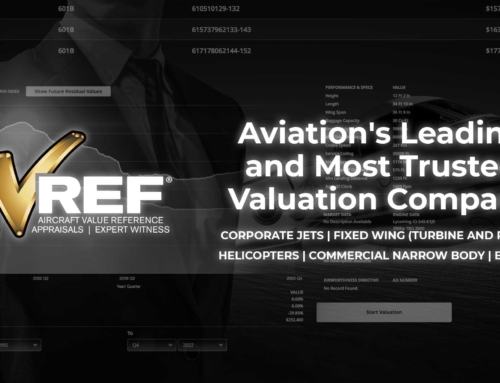In aviation, improper aircraft maintenance can cost owners more time and money in the long run. When safety is a priority, regular upkeep is essential for ensuring optimal performance and protecting the lives of passengers and crew.
Neglecting maintenance leads to dire consequences, ranging from safety hazards to unexpected financial burdens. When essential upkeep is overlooked, the risks escalate, potentially resulting in costly repairs and operational disruptions.
Want to talk to an expert? Contact VREF today.
8 Critical Safety Risks Due To Neglected Or Improper Aircraft Maintenance
Generally, you can maintain your aircraft by adhering to the following best practices for effective maintenance:
- Regular inspections
- Preventive maintenance
- Routine checks
- Trained and trusted maintenance personnel
- Maintenance monitoring technology and tools
Regardless of the aircraft age, neglect or failure to maintain its airworthiness and value can result in any of these 8 outcomes.
1. Engine Failure Mid-Flight
Engine failure during flight is a critical event that can occur due to mechanical issues, fuel problems, or other failures. According to Skybrary, aviation industry studies have found that as many as 20% of all in-flight engine shutdowns can be traced to maintenance errors. Thankfully, pilots are trained to manage such emergencies. If properly trained and executed, pilots have been able to make successful landings despite the challenge.
2. Control Surface Malfunction
A malfunction in the control surfaces – including ailerons, elevators, or rudders – can impede an aircraft ability to maneuver effectively. These issues can arise from improper aircraft maintenance, mechanical failures, or system malfunctions, impacting flight stability. In this case, pilots have a few techniques they can use to regain control of the aircraft.
3. Fuel System Contamination
Impurities within a private jet’s fuel system, like water or dirt, can disrupt fuel flow and lead to engine failure. The following is a list of a few but not all maintenance actions you can take to avoid contaminating the fuel system:
- Check fuel lines for cracks or damage
- Inspect fuel caps for proper sealing
- Examine fuel tanks for rust or corrosion
- Regularly check and replace fuel filters
- Monitor fuel gauges and systems for irregularities
The point is that regular maintenance and inspections are essential to preventing fuel system complications.
4. Structural Weakness Or Failures
Structural integrity is essential in aviation safety. Weaknesses can emerge due to fatigue, corrosion, or design flaws, potentially resulting in catastrophic failure if not identified and addressed promptly. A few of the most common reasons for corrosion include:
- Salt
- Alkalis
- Water
- Acid
- Atmospheric condition
RELATED: How To Spot And Prevent Aircraft Corrosion
5. Electrical System Issues
Electrical system malfunctions can disrupt critical actions such as navigation and communication. Issues may stem from wiring problems, battery failures, or component defects.
Maintenance of electrical systems is increasingly in demand as newer aircraft come with advanced technology with every new model. Aircraft and avionics equipment mechanics and technicians are projected to grow 5% from 2023 to 2033.
6. Landing Gear Problems Due To Improper Aircraft Maintenance
Landing gear issues can significantly impact flight safety, particularly if the gear fails to deploy or retract properly. Such situations require pilots to follow emergency protocols to ensure a safe landing. You can further prevent landing gear issues by:
- Using proper safety equipment
- Following lockout procedures
- Using correct jacking procedures
- Refer to the aircraft maintenance manual
Have questions about the value of your single-engine aircraft? Contact a VREF team member.
7. Pressurization System Failure
A failure in the pressurization system can lead to a loss of cabin pressure, posing serious risks to passengers and crew. The most common failure points to check include:
- Gaskets and seals
- Pressure relief valves
- Gauges and sensors
- Control system components
- Pipe joints and connections
- Compressor/pump seals
Prompt action is crucial to mitigate incidents and maintain safety.
8. Hydraulic System Leaks & Failures
Hydraulic systems are vital for controlling various aircraft functions, including brakes and flaps. Leaks or failures can compromise these systems, highlighting the importance of regular inspections to ensure operational integrity.
Any work – preventive or corrective – should be carefully documented and stored in your logbook(s).
Most Commonly Overlooked Maintenance Tasks In Aviation
According to Skybrary, “No aircraft is so tolerant of neglect that it is safe in the absence of an effective inspection and maintenance programme.“ A few more examples of commonly overlooked maintenance tasks include but are not limited to:
- ELT Batteries
- Control Cables
- Wheel Bearings
- Vacuum Filters
- Potential Hidden Corrosion
- Tires
- Emergency Equipment
Remember, fuel, oil, and landing fees cost about $100 to $200 per flight hour aside from unplanned maintenance and repairs. Both cost about $50 to $60 per flight hour. When looking toward your bottom line, improper aircraft maintenance and repairs can add up quickly, costing you more time and money than you may realize.
Trusted Aviation Consultants At Your Side
When having the latest technology is necessary to stay on top of the market, you can expect the need for trusted aviation mechanics and technicians to increase as technology advances. By 2033, one-fifth of aviation maintenance technician jobs are projected to go unfilled.
According to Glassdoor, the median annual wage for aircraft and avionics equipment mechanics and technicians in the United States was $79,649 in 2023. But they can make much more with additional years of experience and upskilling.
Ultimately, improper aircraft maintenance can jeopardize safety, increase expenses, and disrupt operations – highlighting the critical need for a proactive approach to maintenance in aviation. Talk to an ASA Accredited aviation appraiser for your aircraft appraisal.
The information provided on this website does not, and is not intended to, constitute legal advice; instead, all information, content, and materials available on this site are for general informational purposes only.




